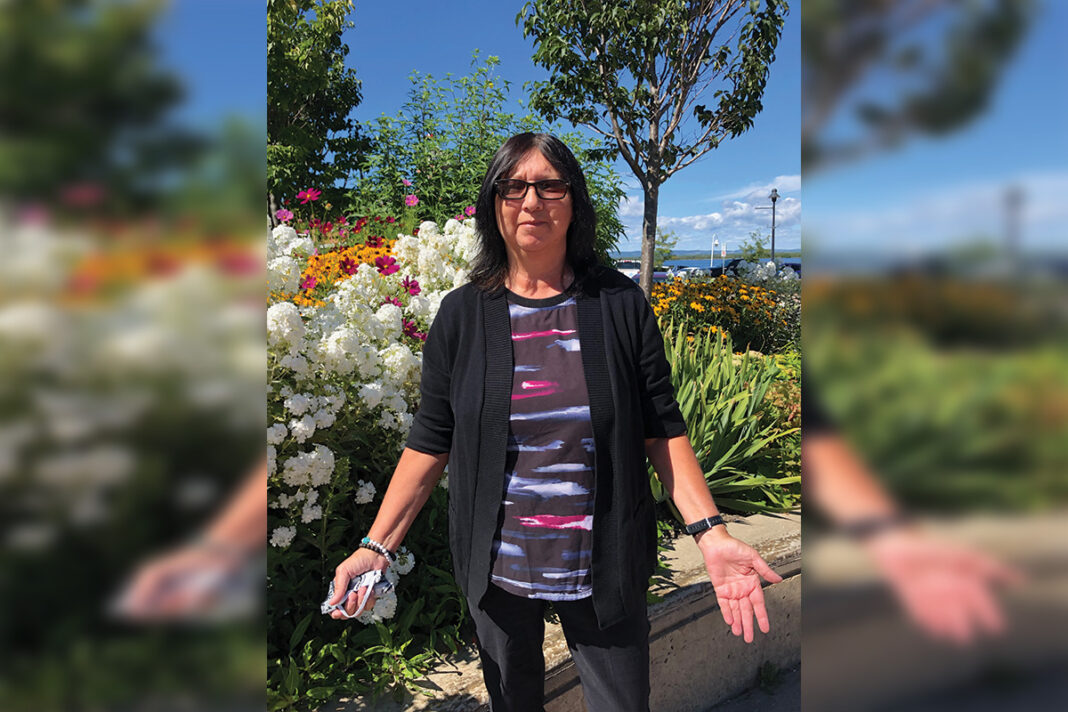Part II of a series
Sets the stage for future annuity settlement negotiations
EDITOR’s NOTE: Robinson-Huron Treaty celebrated the 174th anniversary of its signing recently at an event hosted by the Sudbury-area First Nations. This series will examine and present the highlights of the large gathering.
ROBINSON HURON TREATY TERRITORY—On September 9, the Robinson Huron Treaty Gathering held at the Anderson Farm Museum in Lively was an historic occasion that not only commemorated the signing of the Robinson Huron Treaty of 1850 but also celebrated the recent resolution of a long-standing legal battle. The event saw hundreds of community members come together to mark the distribution of a $10 billion settlement to the 21 Robinson Huron Treaty (RHT) First Nations.
The Robinson Huron Treaty, signed over 170 years ago, was an agreement in which the Anishinaabe ceded large portions of their traditional territory to the Crown in exchange for annual payments. For decades, the Crown failed to adjust these payments according to the wealth generated from the land, as required by the Treaty. This breach led to a prolonged legal struggle, culminating in the Supreme Court of Canada’s landmark Restoule decision, which condemned the Crown for its failure to honour the Treaty’s Augmentation Promise.
The Robinson Huron Treaty Litigation Fund (RHTLF), established by the 21 RHT First Nations in 2012, spearheaded legal action against Canada and Ontario for violating this promise. The litigation sought to address the Crown’s failure to augment the annuity, a commitment that was last fulfilled in 1874, setting the annuity at $4 per person per year. The legal battle saw victories in the Ontario Superior Court and the Ontario Court of Appeal, leading to the announcement of a historic $10 billion settlement on June 17, 2023.
The gathering’s ceremony was a poignant reflection of the journey towards justice. Chief Patsy Corbiere of Aundeck Omni Kaning First Nation spoke on behalf of Assembly of First Nations National Chief Cindy Woodhouse Nepinak and Anishinabek Nation Grand Council Chief Linda Debassige, providing insights into the significance of the settlement.
Chief Patsy Corbiere, one of the original litigants in the landmark case and member of the RHTLF, addressed these concerns during the gathering. She emphasized that negotiations for the go-forward annuity are still in the early stages and details are confidential due to ongoing legal processes.
Chief Corbiere highlighted that these negotiations would build upon the historical context of the Robinson Huron Treaty. The current discussions are expected to revisit some of the issues raised during the distribution of past annuities, such as the complexities surrounding the status of annuitants—individuals entitled to annual payments under the Treaty. Bureaucratic challenges often complicate the determination of who qualifies for these benefits.
Chief Corbiere pointed out that within her own community, only a portion of members are recognized as annuitants, creating complexities and discrepancies. “The system sometimes creates division among our people over who receives benefits,” she said. “We need to address these issues comprehensively to ensure fairness for all members.”
Reflecting on the lengthy process required to reach the settlement for past annuities, which spanned over a decade, Chief Corbiere expressed cautious optimism about the future negotiations. “The pace of progress will depend on the commitment of the government teams involved,” she noted. “The previous teams demonstrated a willingness to see the case through and we hope that this momentum will continue. However, based on my extensive experience with land claims and Treaty issues, I anticipate that the process will be slow.”
Due to confidentiality agreements, specific details about these negotiations are not yet public. However, Chief Corbiere stressed that these discussions will build on the historical context established by the Robinson Huron Treaty and address issues that arose during the past settlement distribution.
Mike Restoule, chair of the RHTLF, emphasized the historic nature of the settlement: “Yesterday’s celebration of the Robinson Huron Treaty settlement marks a significant chapter in our history. It ensures that the Treaty obligations agreed upon with the Crown are upheld. We are grateful to our supporters and neighboring communities who stood with us throughout this journey. The distribution of these funds will provide opportunities for our Nations to strengthen our economies, cultures, and future generations.”
Duke Peltier, of Wiikwemkoong, also of the RHTLF, spoke about the importance of continuing efforts to renew and strengthen the treaty relationship: “As we celebrate the signing and distribution of the annuities settlement, we honour the commitment of our Elders, leaders, legal team and community members who stood firm for justice. However, much work lies ahead to renew and strengthen our treaty relationship. We are optimistic that, through continued negotiation, we can work with the Governments of Canada and Ontario in the spirit of reconciliation, respect and true partnership.”
The Supreme Court’s Restoule decision urged the Crown to “return to the Council Fire” and restore the treaty relationship with the Anishinaabe. The RHTLF is now calling on Canada and Ontario to engage in renewed negotiations to address the go-forward implementation of the Augmentation Promise.
The Robinson Huron Treaty Gathering underscored both the progress made and the challenges that remain in achieving full justice and reconciliation. As Anishinaabe communities continue to navigate these complex issues, the outcomes of this gathering will play a crucial role in shaping their future and ensuring that the principles of the Robinson Huron Treaty are fully honoured.






